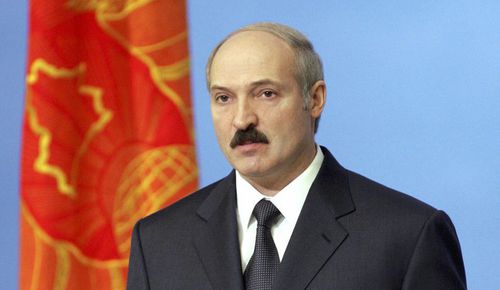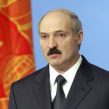
Belarus: No Change in the Offing
Publication: Eurasia Daily Monitor Volume: 9 Issue: 48
By:

One of the weaknesses of Belarus’s geopolitical situation and indeed of its self-perception is that Belarus is a crossroads, a land in between. In many ways this cliché informs thinking about Belarus – while something of note is occurring within its borders, there is a feeling that its future is going to be critically influenced by its powerful neighbors, Russia and the EU. In this regard, a discrepancy between words and deeds is all too apparent on the EU’s part.
On the face of it, the EU cannot stop worrying about violations of human rights committed by the Belarusian government. Brussels has just added 21 names to the list of Belarusians banned from travelling to the EU. After Minsk retaliated by demanding that the Polish ambassador and the head of the EU delegation to Belarus leave Minsk for consultations, the EU recommended that all the EU nations’ ambassadors be recalled from Minsk. But this mutual confrontation is at odds with dynamics of international trade. According to the article by Dmitry Zayats, pointedly titled “Belarus’s export miracle: how the country subdued the EU” (https://naviny.by/rubrics/economic/2012/02/24/ic_articles_113_176962/), in 2011 Belarus’s exports to the EU reached an all-time high of $40.3 billion, a 60 percent increase from 2010. That allowed Belarus to shrink its overall trade deficit, the country’s most acute economic problem, from $9.6 billion (2010) to $5.45 billion (2011). Paradoxically, Belarus’s staunchest allies – Russia, China and Venezuela – only contributed to the expansion of the deficit, whereas the EU pushed in the opposite direction. For example, the trade deficit with Russia increased from $8.13 billion (2010) to $11.24 billion (2011). In contrast, Belarus’s trade surplus with the EU increased from $50 million (2010) to $7 billion (2011). Belarus, however, vastly increased (by 40 percent) its import of Russian oil (due to Russia revoking its oil export tariff) that allowed Minsk to boost its export of refined oil to the EU. Also, the average price of refined oil products increased by 35 percent, which contributed to the trade surplus with the EU. The most stunning growth of Belarus’s exports, by a factor of four, was to Germany. Because Russia ensured full capacity work of both of Belarus’s refineries, the country was able to export all of its domestically extracted oil (1.7 million tons), which was sold to Germany.
In light of Belarus-EU trade dynamics, recalling the EU ambassadors from Minsk comes across as a mixture of grandstanding and desperation. Yury Drakakhrust of Radio Liberty (https://www.svaboda.org/content/article/24499431.html) describes it as a game of chicken, whereby two drivers are on a collision course and one must swerve or else both will die in a crash. Drakakhrust recalls a similar episode in 1998-99, when Western ambassadors demonstratively left Minsk after being evicted from their residences (near the government residential compound in Drazdy in the northern section of Minsk) under a phony pretext of sewer system disrepair. Just as now, the ambassadors’ joint departure in 1999 was imbued with the spirit of defiance. But it was compromised when each ambassador quietly returned to Minsk and occupied a new residence assigned by Belarus’s government. Something along the same lines may happen again. Drakakhrust admits that the release of political prisoners has now become more difficult to achieve as a result of the demarche by the EU. Lukashenka can afford to provoke the EU because Russia shields him more reliably now than in the recent past. Therefore it is unlikely Lukashenka will “chicken out” first. As a matter of fact, on February 13, he endorsed the 2009 Russia-Belarus agreement on joint external border control and on joint missile defense. Earlier, Lukashenka revealed that he asked president Medvedev of Russia to find additional funds to boost Russia-Belarus military cooperation and received a positive response (https://bdg.by/news/politics/16800.html).
Some growth in Belarusians’ trust in their president was recorded in the December 2011 quarterly national survey by the Independent Institute for Socio-Political and Economic Studies (IISEPS), an institution funded by the West. Thus, 31.2 percent of Belarusians trusted the President in December compared with 24.5 percent in September 2011. According to Alexei Turovsky’s analysis of the December survey (https://bdg.by/analytics/594.html), the stable core of Lukashenka’s supporters accounts for 20-25 percent of the electorate. In addition, there is the so-called electoral periphery (30-35 percent of the electorate), which is socially passive but is leery of cataclysms in the event of political change. In neighboring Ukraine, President Viktor Yanukovich actually enjoys much lower support than Lukashenka – just 7 percent of Ukrainians trust Yanukovich who is nevertheless in control. As many as 63 percent of the Belarusian electorate do not believe they are opposed to the current government. The rating of the leading opposition figures is even lower than it was in September – 7 percent is the rating of Andrei Sannikov who is still in jail, and 6 percent support Vladimir Nekliaev.
According to Turovsky, the tragic nature of the economic crisis in Belarus is greatly exaggerated by the opposition media. While 81.5 percent of Belarusians indeed recognize the fact that Belarus is in crisis, as many as 33 percent of the respondents reveal that for them personally last year was successful. While 46 percent thought otherwise, the gap is not catastrophic. Only 18 percent of Belarusians are worried about violations of human rights, their largest worry (shared by 34 percent of respondents) being economic insecurity for their children. The liberal socio-economic model, whereby “the state should least of all interfere in people’s economic activity,” finds support of 21 percent of Belarusians, whereas the paternalist model (“the state should take care of its citizens ensuring a dignified living standard for them”) enjoys the support of 51 percent. In fact, most Belarusians want the current system to be modernized, not removed. The protest potential is currently lower than during the calmer and crisis-free years like 2007. Only 14.8 percent of Belarusians are willing to participate in protest actions and only 11 percent support the idea of a parliamentary election boycott. According to Sergei Nikoliuk, who also analyzed the results of the December 2011 IISEPS’ survey, only 35 percent of those in opposition to the Lukashenka regime trust the existing opposition parties (https://nmnby.eu/new/analytics/4556.html).
It is unlikely that a domestic political change is in the offing in Belarus, and if so, a switch from half-hearted to more consistent realpolitik on the EU’s part is not out of the question.




